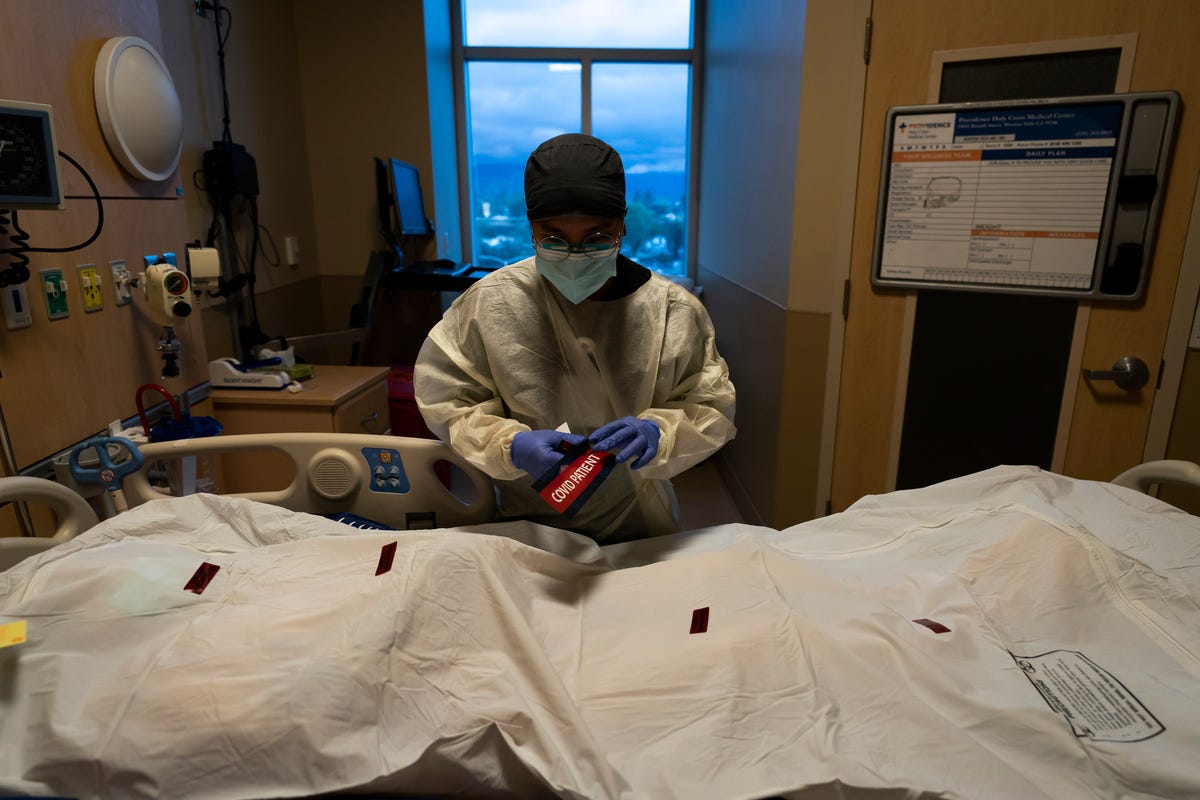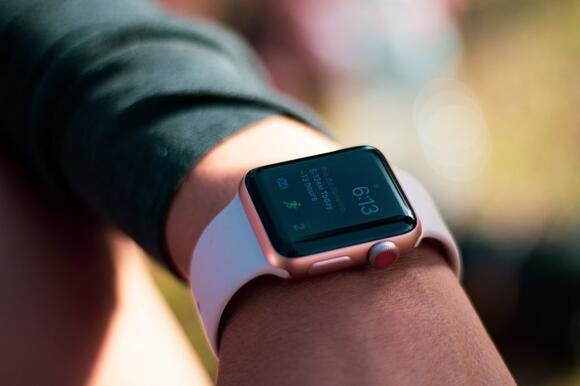According to "our free press" and "the science," what's killing millions is NOT "vaccination." No, it's white bread, smartwatches, Daylight Savings Time, antibiotics, stevia, swimming, Christmas....
Having misled billions into getting jabbed, these "journalists" and "scientists" are also in cahoots producing bogus "reasons" for the ongoing population CRASH. It's epidemiology for halfwits.
A study out of India—where people have been “dying suddenly,” in ever greater numbers, for the past three years—has “found” no link between “vaccination” and that sudden epidemic of untimely deaths:
India: Unexplained sudden deaths in young adults not linked to Covid-19 vaccination, says ICMR study
November 22, 2023
A recent study conducted by the Indian Council of Medical Research (ICMR) has revealed that unexplained sudden deaths among young adults in India are not associated with the COVID-19 vaccination. The study, titled "Factors associated with sudden deaths among adults aged 18-45 years in India: a multicentric matched case-control study," has been published in the Indian Journal of Medical Research. Contrary to initial concerns, the study found no evidence of a positive correlation between COVID-19 vaccination and unexplained sudden death among young adults. In fact, the research suggests that COVID-19 vaccination may actually reduce the risk of such incidents in this age group.
The study highlighted several factors that may contribute to unexplained sudden death among young adults in India. These include a family history of sudden death, previous hospitalization for COVID-19, recent binge drinking, and engagement in vigorous-intensity physical activity. Addressing these risk factors could potentially help mitigate the occurrence of unexplained sudden deaths in this demographic. The researchers interviewed/perused records to collect data on COVID-19 vaccination/ infection and post-COVID-19 conditions, family history of sudden death, smoking, recreational drug use, alcohol frequency and binge drinking and vigorous-intensity physical activity two days before death/interviews. Anecdotal reports of sudden death among healthy young adults in India led the researchers to conduct the investigation. These deaths raised concerns that they might be related to COVID-19 infection or Covid vaccination, official sources stated.
Eating White Bread Linked to Cancer
November 23, 2023
Eating white bread every day could increase a person’s risk of developing colorectal cancer, according to a new study. Chinese researchers linked the lunchroom staple to the devastating diagnosis in a new study published last week in the journal Nutrients. They also found that drinking alcohol increases the risk of colorectal cancer, while diets high in fiber, calcium, magnesium, phosphorus and manganese drop a person’s risk of the disease. White bread has long been derided by dieticians, who instead recommend a whole wheat bread. The flour used in white bread is highly processed and high in carbs, which the body breaks down into sugar. Previous research has linked white bread consumption to increased risk of obesity and diabetes. Both conditions are strongly linked to colorectal cancer.
The American Diet Has a Sandwich Problem
March 14, 2023
The humble sandwich is the saboteur of the American diet. Most Americans consume too much sodium, sugar and saturated fat, according to government survey data. Sandwiches—which almost half of Americans eat on any given day—are a primary culprit. Nutritionists, doctors and public-health officials are trying to nudge people to make their sandwiches healthier, believing that even simple changes can improve health. Sandwiches are the number one source of sodium and saturated fat in Americans’ diets, making up about one-fifth of our daily sodium intake and 19% of our daily saturated fat calories, according to an analysis of federal survey data. Sandwiches contribute 7% of daily added sugars, the same percentage as breakfast cereals and bars. “The standard deli sandwich with processed meat and cheese, you’re literally eating a heart bomb,” says Dariush Mozaffarian, a cardiologist and professor of nutrition and medicine at Tufts University. Excess sodium increases blood pressure, which raises the risk of heart disease and stroke. People also eat an extra nearly 100 calories on the days they eat sandwiches, according to federal survey data analyzed by University of Illinois at Urbana-Champaign researchers. Sandwiches are often high in calories compared with other meals.
Bread again:
Europe Bans U.S. Food Additive That Experts Claim Are Making Americans Sick
Feb 27, 2023
What if I told you the bread you made avocado toast on yesterday was potentially dangerous — would you believe me? If I went to the list of ingredients and pointed out how potassium bromate could potentially be dangerous, would you roll your eyes and call me crazy? What would you say then if I mentioned that Europe has officially banned the use of potassium bromate in all food production as it's been linked back to the growth of tumors? While the FDA has made statements claiming the proper manufacturing process of potassium bromate converts it into a harmless substance, India, China, and now Europe have banned it from food products. Professor Erik Millstone, a food additive expert at the University of Sussex, told CBS News "There is evidence that it may be toxic to human consumers, that it may even either initiate or promote the development of tumors." Why, you might ask, would we be using potentially harmful substances in food production in the first place? Potassium bromate is used to strengthen dough. Plus, synthesizing chemicals in a lab costs way less than manufacturing real ingredients that won't stay fresh as long. A big lesson here: Just because the FDA considers something safe for consumption, doesn't mean that it can potentially be harmful if further research reveals it to be down the road.
Long-term use of ADHD drugs could bring higher risk of heart diseases – study
November 21, 2023
The long-term use of medication for attention deficit hyperactivity disorder (ADHD) could increase the risk of heart diseases, a study has suggested. Swedish researchers linked exposure to the likes of high blood pressure and arterial disease, a condition when the blood vessels that carry blood from the heart to the legs narrow. The team, led by academics from the Karolinska Institutet in Solna, looked at 278,027 people in Sweden aged six to 64 who had an ADHD diagnosis between 2007 and 2020. Of the group, 10,388 were found to have diagnoses of cardiovascular diseases, including cases of heart failure, arterial disease, arrhythmias and high blood pressure among other issues, and were matched with 51,672 patients without cardiovascular diseases. Researchers found using ADHD medication for longer was associated with a higher risk of cardiovascular diseases. Those who had used the drugs had a 9% increased risk for one to two years of use, a 15% higher risk for two to three years, and a 27% higher risk for three to five years. There was a 23% increased risk for more than five years.
Can antibiotics damage a person’s heart?
October 13, 2023
Some antibiotics can cause problems with the heart. These include fluoroquinolones, which can cause various issues with the aorta. Macrolides, a different group of antibiotics, can cause permanent changes to the heart’s rhythm. Antibiotics are among the most common drugs in use around the world. These medications can cause several side effects, ranging from headaches to nausea. They can also affect the heart. The article will explain which antibiotics can cause heart problems. It will then look at whether chest pain is a side effect of antibiotic usage and whether it is safe for people with heart problems to take antibiotics.
Erythritol, an ingredient in stevia, linked to heart attack and stroke, study finds
September 29, 2023
A sugar replacement called erythritol — used to add bulk or sweeten stevia, monkfruit and keto reduced-sugar products — has been linked to blood clotting, stroke, heart attack and death, according to a study. “The degree of risk was not modest,” said lead study author Dr. Stanley Hazen, director of the Center for Cardiovascular Diagnostics and Prevention at the Cleveland Clinic Lerner Research Institute. People with existing risk factors for heart disease, such as diabetes, were twice as likely to experience a heart attack or stroke if they had the highest levels of erythritol in their blood, according to the study, published February 27 in the journal Nature Medicine. “If your blood level of erythritol was in the top 25% compared to the bottom 25%, there was about a two-fold higher risk for heart attack and stroke,” Hazen said. “It’s on par with the strongest of cardiac risk factors, like diabetes.” Additional lab and animal research presented in the paper revealed that erythritol appeared to be causing blood platelets to clot more readily. Clots can break off and travel to the heart, triggering a heart attack, or to the brain, triggering a stroke.
Death rates for people under 40 have skyrocketed. Blame fentanyl
September 5, 2023
A new Stateline analysis shows that U.S. residents under 40 were relatively unscathed by COVID-19 in the pandemic but fell victim to another killer: accidental drug overdose deaths. Death rates in the age group were up by nearly a third in 2021 over 2018, and last year were still 21% higher. COVID-19 was a small part of the increase, causing about 23,000 deaths total between 2018 and 2022 in the age group, which includes the millennial generation (born starting in the early 1980s), Generation Z (born starting in the late ’90s) and children. Vehicle accidents and suicide (about 96,000 each) and gun homicide (about 65,000) all took a cumulative toll from 2018 to 2022, according to a Stateline analysis of federal Centers for Disease Control and Prevention data. Overdose deaths, however, took almost 177,000 lives in that time. Accidental overdose became the No. 1 cause of death in 13 states for people under 40, overtaking suicide in nine states and vehicle accidents in five others; it’s now the top cause in 37 states. The only other change was in Mississippi, where homicide became the main cause of death, overtaking car accidents. In 40 states and the District of Columbia, overdose was the biggest increase in deaths for young people.
States are responding to the skyrocketing death rates with “harm reduction” strategies that can include warning of the new danger of recreational drugs laced with deadly fentanyl, training and equipping people to counteract overdoses when they see them, and even considering controversial supervised drug use sites to keep addicts safer. A “fourth great wave” of accidental overdose deaths driven by drugs spiked with powerful fentanyl is now washing over young America, said Daliah Heller, vice president of drug use initiatives at Vital Strategies, an international advocacy group that works on strengthening public health.
And now a word from our sponsor:
Why Do Some People Die In Their Sleep?
October 26, 2023
It’s a pretty human thing to think about our mortality, particularly when it comes to the prospect of how it might happen. For some, they might be worried about dying in their sleep – but thankfully, unless you have a particular medical condition, the chance of that happening is relatively low. There are a number of reasons why someone might die in their sleep, but they usually center on three of our most important organs. "Dying in your sleep is usually related to the heart, lungs or brain," explained Dr Milind Sovani, a consultant in respiratory medicine at Nottingham University Hospitals NHS Trust, speaking to Newsweek. When we’re asleep, we’re less likely to be able to respond to the signals that might indicate something is wrong with these organs. “If I’m standing up and I have a 10-second pause in my heart rate, I’m going to fall down and pass out and make a big thud and someone is going to hear it,” cardiologist Jack Flyer told The Wall Street Journal (WSJ). “When you’re sleeping, you just can’t respond to yourself and your own symptoms.” According to Sumeet Chugh, medical director of Cedars-Sinai’s Heart Rhythm Center, sudden cardiac arrest (SCA) is responsible for 90 percent of sudden and unexpected death during sleep, also known as nocturnal death, WSJ reports. People at higher risk of SCA include those with coronary artery disease, an enlarged heart, or an irregular heartbeat (often one that’s fast, also called ventricular fibrillation). SCA is when the heart suddenly stops beating, which in turn stops blood flow to the major organs and can result in death without immediate treatment. Of all such deaths from SCA, 22 percent occur between 10 pm and 6 am, with women more likely to be affected during this time.
Daylight Saving Time Linked to Serious Negative Health Effects
March 13, 2023
As people in the U.S. set their clocks ahead one hour on Sunday, I find myself bracing for the annual ritual of media stories about the disruptions to daily routines caused by switching from standard time to daylight saving time. About one-third of Americans say they don’t look forward to these twice-yearly time changes. And nearly two-thirds would like to eliminate them completely, compared to 21% who aren’t sure and 16% who would like to keep moving their clocks back and forth. But the effects go beyond simple inconvenience. Researchers are discovering that “springing ahead” each March is connected with serious negative health effects, including an uptick in heart attacks and teen sleep deprivation. In contrast, the fall transition back to standard time is not associated with these health effects, as my co-authors and I noted in a 2020 commentary. I’ve studied the pros and cons of these twice-annual rituals for more than five years as a professor of neurology and pediatrics and the director of Vanderbilt University Medical Center’s sleep division. It’s become clear to me and many of my colleagues that the transition to daylight saving time each spring affects health immediately after the clock change and also for the nearly eight months that Americans remain on daylight saving time.
Two articles on pancreatic cancer:
What is the link between alcohol and pancreatic cancer?
March 1, 2023
Research shows links between alcohol use and pancreatic cancer. Drinking excessive amounts of alcohol is a common cause of chronic pancreatitis, which increases pancreatic cancer risk. Pancreatic cancer develops in the pancreas, the organ that produces enzymes to aid digestion. Symptoms may appear only in the later stages of the disease, and this tends to delay diagnosis and treatment. Pancreatic cancer occurs mainly in people who frequently consume alcohol and those who also smoke cigarettes. In this article, we look at the effects of alcohol on the pancreas and whether alcohol causes pancreatic cancer. We also look at pancreatic cancer’s symptoms, risk factors, and potential treatment options. In a 2018 study, researchers found that people who stayed in a hospital to receive treatment for acute pancreatitis were more likely to develop pancreatic cancer than the general population. Also, the combination of alcohol consumption and cigarette smoking may increase the risk of cancer in the pancreas.
A recipe for pancreatic cancer: obesity + diabetes
November 27, 2023
The University of British Columbia’s Faculty of Medicine has revealed a direct link between high insulin levels and pancreatic cancer. To understand the deadly seriousness of this link, you first need to understand how quickly the number of people with obesity and diabetes is growing. The World Obesity Foundation predicts an increase in adult obesity from 38 percent of the world’s population in 2020 to over 50 percent by 2035. A 2021 report from the International Diabetes Federation projected that by 2045, one in 8 adults, or about 783 million people, will be living with diabetes — an increase of 46 percent. And by 2030, PDAC (pancreatic ductal adenocarcinoma, with a five-year survival rate of less than ten percent) is expected to become the second-leading cause of cancer-related deaths. And it’s no accident that all three are rising together.
Smartwatches may trigger heart attacks in vulnerable patients: study
February 22, 2023
Smartwatches such as Fitbits may trigger a heart attack in vulnerable patients, according to new research. Wearable gadgets can interfere with medical devices such as pacemakers, say scientists. Lead author Dr. Benjamin Sanchez Terrones, a computer engineer at Utah University, said: "This study raises a red flag. We've done this work in simulations and benchtop testing following Food and Drug Administration accepted guidelines. These gadgets interfere with the correct functioning of the CIEDs (cardiac implantable electronic devices) we tested." They also included cardioverter defibrillator (ICD) and cardiac resynchronisation therapy (CRT) implants. Dr. Sanchez Terrones said: "These results call for future clinical studies evaluating the translation of our findings to patients wearing CIEDs and using these wearable devices." High-tech watches that record exercise levels for the health conscious are potentially deadly for a small group of people, warn the international team. They also include at-home smart scales and smart rings that utilize a sensing technique called bioimpedance. It emits a very small, imperceptible current of electricity measured in microamps into the body.
Researchers warn of potentially fatal condition for open-water swimmers
January 9, 2023
A potentially life-threatening condition that can affect fit and healthy open-water swimmers causing them to “drown from the inside” may involve a buildup of fluid in the heart muscle, researchers have suggested. Swimming-induced pulmonary oedema – SIPE – is a form of immersion pulmonary oedema and involves the accumulation of fluid in the lungs of swimmers without it having been inhaled. The condition is thought to be a result of increased pressure on the body’s blood vessels as a result of exertion, immersion and cold. The condition can cause breathing difficulties, low blood oxygen levels, coughing, frothy or blood-stained spit and, in some cases, death.
Sudden Cardiac Death During Play: What to Know About Athletes Dying of Heart Attacks
July 20, 2022
Every year, there are cases of sudden cardiac arrest and sometimes death, even among the fittest athletes. While heart attacks on the court or playing field are fairly uncommon, they are still worth learning about — especially if you or someone you love has a history of heart conditions. This article examines why some athletes have heart attacks, the rate of death from these cardiac events, how rare these cases are, and whether COVID-19 and subsequent vaccines are linked in any way to these deaths.
What’s But it’s very uncommon. Although exercise is incredibly beneficial for most people, there are athletes with preexisting cardiac conditions. If these athletes unknowingly push the boundaries of physical activity too far, it can be deadly. A 2018 reviewTrusted Source determined that sports-related deaths are majorly due to coronary artery disease in adults and cardiomyopathy or arrhythmia in youths. Other heart conditions, like myocarditis, can contribute to sudden cardiac death, too, but these do not occur suddenly. Generally, someone with myocarditis would likely feel sick and not participate in the sport. Sudden deaths, even among younger athletes, are extremely rare. Getting the exact rate of occurrence has been difficult, though. Inconsistent data collection methods and lack of consistency in research methods have made the prevalence hard to determine.
The coronavirus that causes COVID-19 has affected athlete deaths, but the exact numbers are unknown at this time due to co-morbidity factors. It’s known that getting COVID-19 increases the risk of developing myocarditis. This condition can lead to heart attack as well as add inflammation to the body, which could increase any preexisting issues. A 2021 observational study involving 1,597 athletes who had COVID-19 found that 37 of them (2.3%) had diagnosable myocarditis and possible myocarditis. A 2022 study found this rate to be higher for athletes who underwent cardiac magnetic resonance (CMR) testing. Knowing that COVID-19 increases the risk of myocarditis and other cardiac conditions, the American College of Cardiology recommends cardiac screening for all athletes who have cardiopulmonary symptoms before they return to play. There is no definitive proof that COVID-19 vaccines put athletes at higher risk of heart attack. There may be a very slight increase in the risk of myocarditis post-vaccination, but it is very small. Researchers in a 2021 study investigated the association between vaccination and myocarditis among 4,931,775 people who received the vaccine. They found that on average, there were 5.7 events of myocarditis or myopericarditis per 100,000 vaccinated people. That is 0.0057 of a percent. Researchers determined that while there may be an association, the risk is quite low.
It’s important to remember that even though many athletes are “fit” and practice physical exercise, that does not mean they are healthy. While fitness increases health, it does not ensure it. Other factors are extremely important, too, like proper nutrition, sleep, and recovery.
Of course it’s the “COVID” (or was):
Fatal heart attacks surged among young adults in 2nd year of pandemic
October 25, 2022

As the numbers of COVID-19 infections surged during the pandemic, deaths from heart attacks rose sharply as well, with adults ages 25-44 experiencing the most significant increases, according to new research from scientists at Cedars-Sinai Medical Center in Los Angeles. “The dramatic rise in heart attacks during the pandemic has reversed what was a prior decade-long steady improvement in cardiac deaths,” said Dr. Yee Hui Yeo, first author of the study and a Cedars-Sinai physician-scientist. “We are still learning the many ways by which COVID-19 affects the body, regardless of age, gender, ethnicity or race.” Scientists around the nation and world continue to release findings that show SARS-CoV-2 infections increase risk of other serious conditions such as stroke, nerve damage and some autoimmune diseases. While other infections such as the flu are known to lead to a slightly increased risk of heart attacks, the Cedars-Sinai researchers said, they could find nothing that compared with the jump in deaths linked to the COVID-19 pandemic. Their findings were published in the peer-reviewed Journal of Medical Virology.
U.S. deaths attributed to heart attacks, or acute myocardial infarctions as they are medically known, shot up 14 percent to 164,096 in the first year of the pandemic, April 1, 2020, to Mar 31, 2021. By the second year of the pandemic, the dramatic increases in heart attacks blew apart the models used to predict how many people would lose their lives to these events. Fatal heart attacks among adults ages 25-44 soared 29.9 percent over what was predicted. Deaths from heart attack climbed by 19.6 percent for adults ages 45-64 and by 13.7 percent for ages 65 and older. These excessively higher rates of heart attack-related death have persisted throughout the pandemic, the Cedars-Sinai researchers found, including the possibility that COVID-19 could trigger or accelerate coronary artery disease. The scientists said more research has to be done to pinpoint risks.
Certainly, Cheng and the other researchers said, behavioral health challenges associated with the pandemic — job losses, isolation, the unexpected deaths of relatives, or other pressures — can also cause acute or chronic stress leading to cardiac disease. Because of this increased risk of stress, many Americans have fallen out of the habit of exercising and may have skipped medical check-ups that could detect problems, said a separate team of Cedars-Sinai researchers who reported in August that COVID-19 was linked to an increased risk of stroke. Individuals who were vaccinated were 200 times less likely to have a stroke after having the respiratory disease. Those who had severe cases of COVID-19 were at a much greater risk of experiencing inflammation, blood clots and heart disease. Dr. Nancy Sicotte, chair of the Department of Neurology and the Women’s Guild Distinguished Chair in Neurology at Cedars-Sinai, strongly recommended vaccines for individuals in high-risk groups. This includes those who have lung or cardiovascular disease, high blood pressure, high cholesterol, diabetes, a prior stroke, people who are immunocompromised, and individuals aged 65 and older.
The more polluted the air, the more healthy teens are at risk of heart disease, study finds
September 15, 2022
American researchers have highlighted the heart risks associated with exposure to polluted air, including among adolescents. This is, according to the researchers, the first comprehensive study on the subject. And it is alarming. The inhalation of fine particles due to air pollution would considerably increase the risk of suffering from heart disease in adolescents. The results of this study, conducted by scientists from the University of Pennsylvania, published in the Journal of the American Heart Association, are all the more worrying as they show similar effects in young people and in seniors. Worse still, these risks of heart disease – in particular arrhythmia, that is to say irregular rhythm of the heart – occur even when the air quality is considered good by the measuring tools in currently in force. According to the researchers, wearing a mask and avoiding sports outdoors on pollution days or during rush hour in the city could help reduce the risk of exposure.
The Guardian: Rise in mouth cancer deaths linked to NHS dentist shortages, say campaigners
November 8, 2023
A sharp rise in deaths from mouth cancers over the last decade is linked to a decline in access to NHS dentists, patients and oral health campaigners have said. More than 3,000 people in England died from mouth cancer in 2021, compared with 2,075 in 2011, according to figures by Oral Health Foundation (ORF) first reported by the BBC, representing an increase of 46%. The ORF, Toothless in England (TIE), a group that campaigns for free dentistry, and the British Dental Association (BDA) said the rise was a direct result of cuts to NHS dentistry. The number of active NHS dentists in England is at its lowest level in a decade , according to figures released earlier this year by the BDA. It found that 23,577 dentists carried out NHS work in the 2022-23 financial year, down by more than 1,100 on the pre-pandemic level and the lowest number since 2012-13, and that up to 90% of practices were not accepting new NHS patients. Nigel Carter, chief executive of the ORF, said: “With access to NHS dentistry in tatters, we fear that many people with mouth cancer will not receive a timely diagnosis.”
Yes, it’s still the “COVID”:
Even mild COVID infections can lead to poorer heart health, study reveals
April 28, 2023
Portsmouth, United Kingdom — Studies continue to link COVID-19 infections to subsequent cardiovascular and health issues post-recovery, ranging from shortness of breath to myocarditis. Now, researchers from the University of Portsmouth suggest that even a mild case of COVID can be detrimental to heart health in the long-term. This project is the first ever to compare both pre and post-COVID infection levels of arterial stiffness; a key marker linked to the aging and the functioning of our arteries. The lingering impact of a COVID-19 infection, often referred to as “long COVID,” is associated with increased risk of cardiovascular disease, dementia, and in extreme cases, death.
Sudafed, Nurofen and Day & Night Nurse could be BANNED or become prescription-only as officials launch probe into rare yet deadly brain side effects linked to decongestant taken by millions
February 22, 2023
Sudafed could be pulled from shelves or even made prescription-only because of links to extremely rare but deadly brain disorders. Medical regulators are 'reviewing available evidence' to see if the rules on selling pseudoephedrine need to change, it emerged today. Health chiefs are spooked by reports of patients being struck down with two rare conditions. Both can cause strokes. Other decongestants, such as products made by Benylin, Nurofen and Day & Night Nurse, would also be affected if any change was necessary. Officials didn't specify how many cases of PRES or RCVS linked to pseudoephedrine had been spotted to warrant the probe.
Christmas Disease Is The Condition You Need To Know About This Festive Season
December 19, 2022
There is a condition called Christmas disease that affects thousands of people around the world [population 8 billion], but it’s not as jolly as it may sound. We're using this festive period to spread some awareness of this rare and little-known disease. Christmas disease is also known as hemophilia B or IX hemophilia. Its name has little to do with the holiday season, instead stemming from the name of the first person to be officially diagnosed with the condition in 1952, a young British boy called Stephen Christmas. It describes a disorder where a person's blood does not clot properly, which can lead to life-threatening bleeding, but it differs subtly from classic hemophilia. When you cut, scrape, or puncture your skin, it should start to ooze liquid blood. Very quickly, however, the blood will undergo a coagulation process that turns it into a gel and eventually a clot. This process involves many components, one of which is a protein called factor IX. People with the Christmas disease produce little or none of these proteins because they have an inherited mutation of the gene that codes for factor IX. As a result, they can experience prolonged, sometimes life-threatening, bleeding after an injury and bruise easily. They can even experience spontaneous bleeding, like nosebleeds, blood in pee, and bleeding in the joints. Other forms of hemophilia, which involve other types of anti-hemophilic factors, are more prolific with hemophilia B representing just 15 percent of total cases.












The worst Gaslighting Operation in the history of humanity.
Even people that were coerced into taking the jab & now have vaccine regret can see that this article is bullshit. And everyone else that are still taking the boosters have their heads in the sand and will probably never see that article. Sometimes things have to get really really bad before they get better. As far as bread goes, it's the glycosphate they spray all over the wheat to kill it right before it's harvested, processed killing us slowly, why are we the only country that still sprays glycosphate all over our wheat?